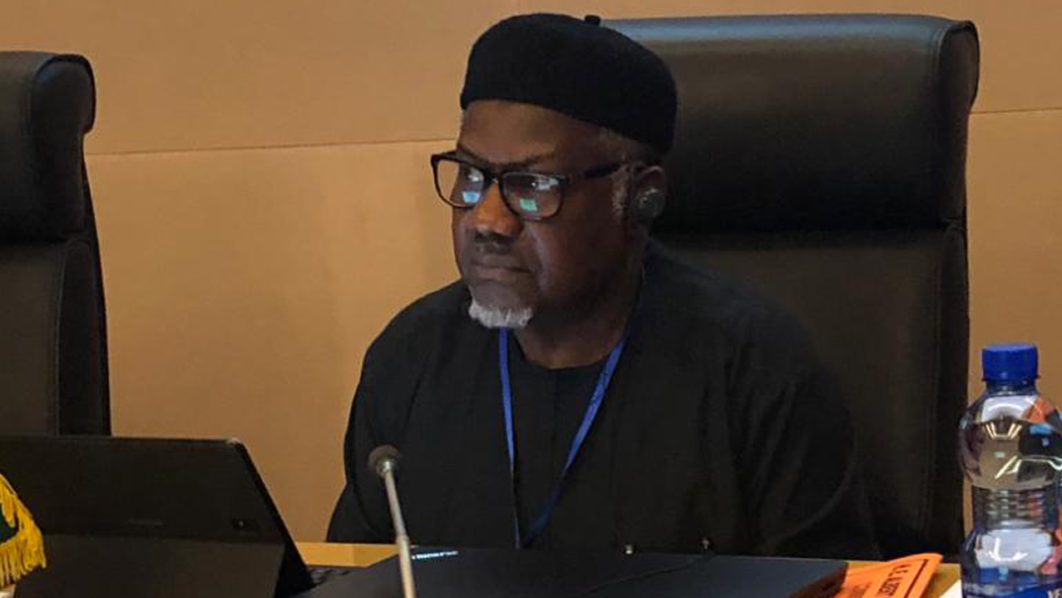
The Directing Staff, National Institute for Policy and Strategic Studies, Prof. Tunji Olaopa, while speaking during an event organised by the Manufacturers Association of Nigeria (MAN) on “Industrialisation and Sustainable Development Goals,” to mark its 50th anniversary, also stressed the need for Nigeria to creatively confront and resolve the country’s high consumption culture against its minimal production capacity.
Olaopa noted that the country’s entire policy architecture must be redirected much more creatively and urgently, to reversing the consumption-production discrepancy.
Olaopa called for greater adoption of clean, green and environmentally friendly industrial processes reliant on alternative energy sources to save the planet.
“As a country going forward, it means that our entire policy architecture must be redirected towards consumption production discrepancy.
“This means focus on the Local Content Act especially the clauses on value creation, developing of private sector capacity and utilisation of local resources in industrial activities,” he said.
The Secretary to the Government of the Federation, Boss Mustapha, reiterated the government’s commitment to protecting the interest of manufacturers for the sector’s improved contributions to the Nigerian economy.
Mustapha said there is an intricate link between industrialisation and the 17 SDGs, saying, “global economic recovery from COVID-19 pandemic has taught us the need for reengineering through industrialisation and the government is ready to address issues the sector is faced with so as to record growth not just in Gross Domestic Product (GDP) but in the actual lives of Nigerians.
“To this effect, we are ready to support a green economy, supported by green industries to propel green growth.”
The president of MAN, Mansur Ahmed, explained that the session was premised on the urgent need as industrialists to examine and prioritise the nexus between industrialisation and Sustainable Development Goals (SDGs).
On her part, the United Nations’ Deputy Secretary-General for Sustainable Development Goals (SDGs), Ms. Amina Mohammed, has revealed that the United Nations would establish a global compact hub for business in Nigeria that would support the country’s effort on achieving industrialisation through SDGs.
Mohammed stated that the United Nations is ready to support Nigeria in harnessing industry and making progress towards the goals.
She commended MAN for its role in job creation and driving industrialisation in the country, and added that inclusive and sustainable industrial development was needed in achieving the SDGs.
She said: “Inclusive and sustainable industrial development plays a key role in achieving the SDGs; it lies at the heart of the economic growth and creating decent jobs in Nigeria. I applaud the essence of MAN in job creation, advocacy and result-oriented services it provides to its members who drive manufacturing in Nigeria.”
Mohammed, however, acknowledged that COVID-19 has derailed progress across all the 17 SDGs in 2020 as 124 million were pushed back into poverty and some 255 million jobs were lost worldwide.
She warned that “as we start recovery, the country must be guided by the SDGs as the UN stands ready to support Nigeria in harnessing industry and making progress towards the goals.
“The UN global compact is a special initiative of the Secretary-General dedicated to promoting sustainable business and can be a key partner in this process. The global compact had a local network in Nigeria, which would grow in the coming years.
“Additionally, as part of the global compact new African strategy, a hub will be established in Abuja to support business across the continent in our joint effort to achieve the SDGs. I encourage MAN to engage with the global compact in the context of his new Africa strategy, so business can effectively help move the sustainable recovery for Nigeria and the continent.
“Nigeria also stands to benefit greatly from the African Continental Free Trade Area, which will improve the quality of goods and services and increase Nigeria competitiveness in national and international markets.
“The MAN support will be crucial in ensuring Nigeria takes a profit from the 4th industrial revolution by accelerating digital expansion and promoting green industries while participating in the third industrial development decade for Africa.”



